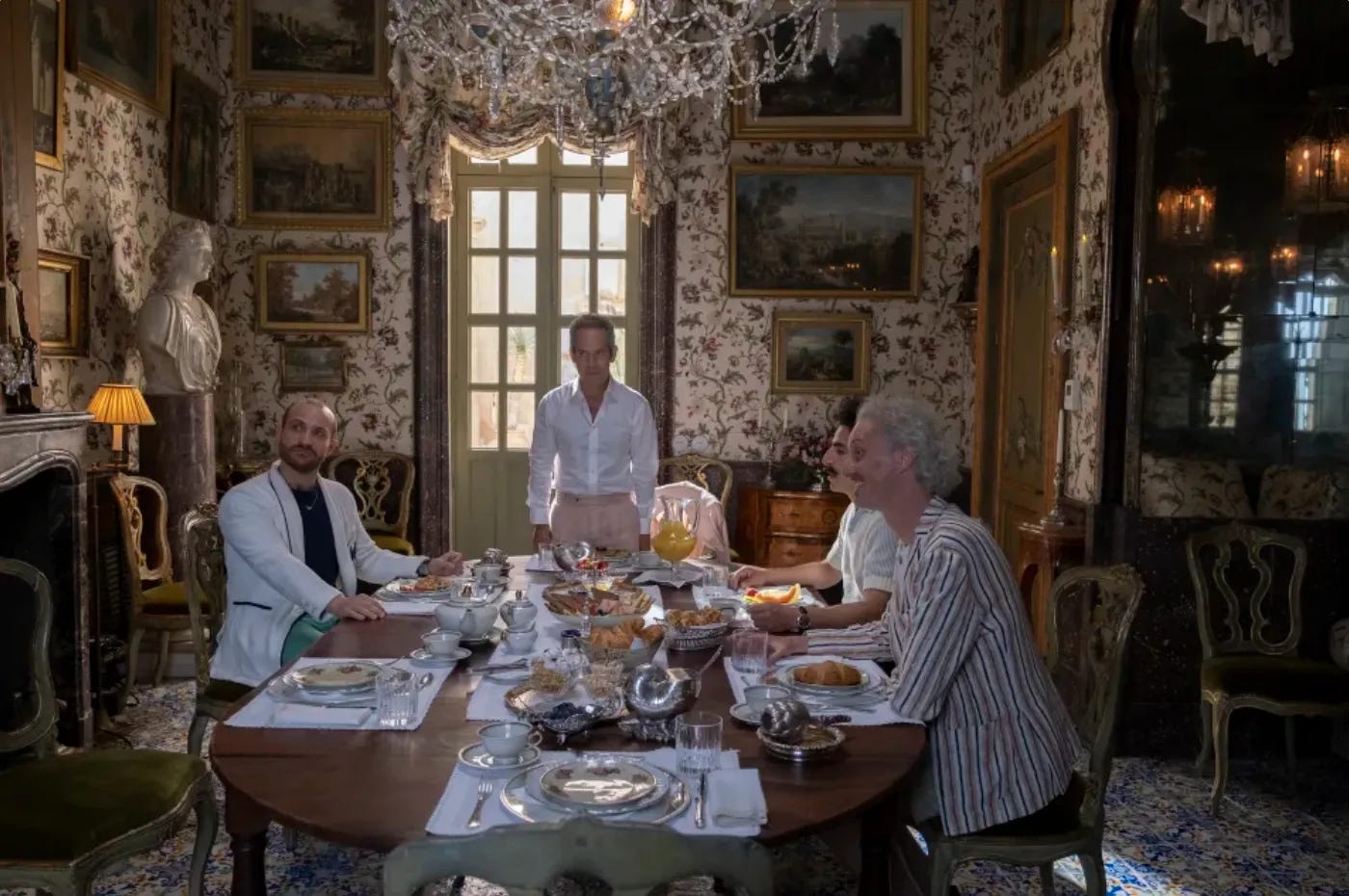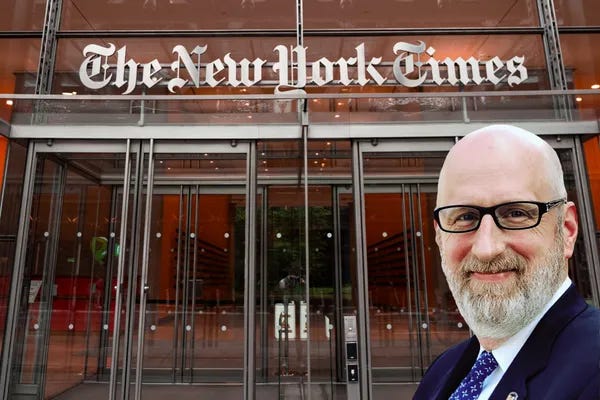FAIR Northern Michigan: Seeking Better Ways Forward
This week on our Substack, Brooke Hemingway writes about FAIR’s Northern Michigan chapter leader Sally Nagy’s experience becoming a part of FAIR, and her efforts to use FAIR’s Pro-Human approach to bring people together in her community.
When asked about her feelings on the progress the Northern Michigan chapter has made, Sally emphasized the importance of taking small steps. Along with many other FAIR chapter leaders, she understands that in many cases introducing pro-human values is “not a race, but a marathon.” Starting the Northern Michigan chapter made her see how small actions—such as teaching her kids with the FAIRstory curriculum, or using Daryl Davis’ inspiring work to connect with others across seemingly intractable divides—have made an important difference in her life and the lives of others. She sees each action as “sending this rippling effect of positive vibrations throughout our country and the world, one chapter at a time.”
A Love Letter to America
For his Substack, Democracy and Other Problems, FAIR advisor Shadi Hamid writes an honest love letter to America, and explores shifts in his perspective that took place over the course of the Trump years and their aftermath.
So, yes, America feels vaguely intolerable in a number of ways, but it's also a country that feels utterly alive with possibility. It just so happens that those possibilities are both good and bad. America is messy, vibrant, and conflictual. It is stressful. Compared to Western Europe, where the state is perpetually present like an overbearing but largely non-abusive father, few Americans even make reference to “the state” as such. In this sense, America is better understood as the world's most successful developing country—or less delicately, a “very rich third-world country.” As the political theorist Samuel Goldman reminds us, we are more like Latin America than we might like to admit. We have high crime, lots of guns, untamed religious and ideological passions that double as awakenings, tangled legacies of slavery, and a messy, chaotic pluralism that seems perpetually on brink of some mass disorder.
So we return, as always, to the question of first principles. What do we value and why do we value it? Does it really improve quality of life to know that the government isn’t going to intervene and try to shape your religious beliefs? As a Muslim, I can say that this does make life better in a very specific way (and I’ve said before that the best place to to be a Muslim in the world today might very well be right here in these United States). But not having a state that intervenes also means that the social safety net isn’t particularly safe nor is it really even a net, with its suggestion of falling but having something other than concrete upon which to fall.
The Return Of The Evil Gays
For his Substack, The Weekly Dish, FAIR advisor Andrew Sullivan writes about the recent smash hit series, The White Lotus, and how the cultural consensus around homosexuality has evolved over the past several decades.
But I think of the responses to gay integration from the two extremes as temporary reactionary backlash. For the right, we’ve seen a revival of the old-fashioned Christianist homophobia that many of us had hoped we’d left behind (but some had obviously been stewing in for a while). For the left, “trans” and “equity” are now the lodestars — with “gay” and “equality” long since left in the dust. In another unforeseen twist, trans ideology now actually reinforces rigid sex stereotypes, tells gender-nonconforming gay children they could be the opposite sex, and insists that homosexuality is a form of bigoted “genital preference,” rather than a normal variation in the human condition. Talk about reactionaryism.
Both reactionary moods are attempts to regain some equilibrium on either extreme after the triumph of the gay center in the first two decades of this century. I’m rattled by the capture of the gay rights movement by queer theory claptrap and by the homophobia that has always existed and that it has in part provoked. But I remain pretty secure that the center is going to hold — as the Respect for Marriage Act showed. Civil marriage rights, military service and open homosexuality in every field of life is here to stay. Most normies are fine with us. And we are with them.
Does Jordan Peterson need to be re-educated?
For The Spectator, FAIR in the Arts Fellow Winston Marshall writes about the College of Psychologists of Ontario’s call for the “re-education” of Jordan Peterson lest he lose his license as a clinical psychologist, and the implications this has for those who wish to publicly speak their mind.
If Peterson submits, or loses his case, it may be OK for him – he can continue his various enterprises outside of psychology. He’s unlikely to go back to his clinical work anyway now that he reaches millions of people online. But that surely misses the point. Peterson earned his academic credentials fair and square. And what effect will it have on other clinicians if Peterson is silenced? You couldn’t blame them for thinking they had better keep zip or face losing it all.
This breeds self-censorship. Given there are governing boards across most professions, a climate of fear will spread. Careers take decades to build, and most people need their jobs to support their family, and pay their mortgage.
Peterson being threatened with losing his clinical practice unless he undertakes voluntary ‘media training’, for which he must pay for himself, is the 21st century liberal Canadian equivalent of Maoist reeducation.
It's Okay to Give the MSM a Little Credit for Ideological Diversity
For Bernard Goldberg’s Substack, John A. Daly writes about the New York Times’ recent decision to hire David French and why this is a win for those who value ideological diversity in mainstream media.
One of the persistent, most valid criticisms that conservatives have directed at prominent mainstream-media outlets like the New York Times has been that they lack intellectual and ideological diversity. The paper (along with most media-institutions) has long leaned decidedly left. So, it sure would seem to be a good sign that the Times was interested in bringing in someone with French’s profile.
But in today’s very tribal political environment, diversity of thought isn’t valued nearly as highly as it may have once been, including by a lot of people who still regularly complain about there not being enough of it.
So, when decisions are made by an ideologically lopsided media organization to bring a little more balance to its product, some view the move as an abandonment of principle, credibility, or objectivity.
Want to help advance civil rights and liberties for all, and promote a common culture based on fairness, understanding, and humanity? Sign up for a free subscription today!
FAIR News Podcast
For audio versions of our FAIR News and FAIR Weekly Roundup newsletters, subscribe and listen to FAIR News Weekly on Apple Podcasts, Spotify, Google Podcasts, or via RSS feed.
Join the FAIR Community
Become a FAIR volunteer or to join a FAIR chapter.
Join a Welcome to FAIR Zoom information session to learn more about our mission, or watch a previously recorded session in the Members section of www.fairforall.org.
Take the Pro-Human Pledge and help promote a common culture based on fairness, understanding, and humanity.
Support FAIR and the pro-human movement with a tax-deductible donation.
Share your reviews and inform our legal team of incidents on our FAIR Transparency website.











Thank you for the great selection of reads... your readership may be interested in this essay, "When ‘Black’ & ‘Hispanic’ Students Outscore ‘Asian’ & ‘White’ Students on the ACT, Nobody Notices."
https://everythingisbiology.substack.com/p/when-black-and-hispanic-students